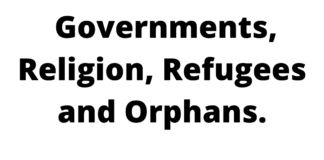Introduction
When discussions about the climate crisis arise, a common refrain revolves around the global population’s role. However, a closer examination reveals that it’s not the sheer number of humans that poses the greatest threat; rather, it’s the disproportionate impact of the wealthiest individuals. This article delves into the alarming influence of billionaires on climate change, highlighting the stark contrast between the actions of the richest 1% and the rest of humanity.
The Rich vs. the Rest: Carbon Emissions Disparity
In the intricate web of environmental challenges, the spotlight turns to the stark contrast between the carbon emissions of the wealthiest individuals and the rest of the global population. This section delves into the nuances of the carbon emissions disparity, revealing the unsettling truth about the disproportionate impact of the affluent on the world’s climate.
Carbon Emissions Data Unveiled
Exploring the data on carbon emissions unravels a disconcerting reality: the richest 1% of the world’s population contributes more to carbon emissions than the poorest 66%. This statistical revelation challenges the conventional narrative that places the onus on population growth. Instead, it underscores the need to scrutinize the actions of the wealthiest individuals whose lifestyles and choices wield unparalleled influence.
The Farmer in Bangladesh vs. the Venture Capitalist in California
Drawing a comparative analysis between the farmer in Bangladesh and the venture capitalist in California reveals a crucial distinction. The carbon footprint of individuals engaged in vastly different socio-economic activities is not uniform. While the farmer’s impact is relatively modest, the venture capitalist, driven by consumption patterns and investment decisions, emerges as a significant contributor to environmental degradation.
Billionaires as Carbon Culprits
The narrative extends beyond individuals to highlight the collective impact of billionaires. A thought-provoking analogy emerges – billionaires as carbon culprits. This select group, despite its numerical insignificance, exerts an outsized influence on carbon emissions, challenging the notion that population growth is the primary driver of the climate crisis.
Implications for Environmental Advocacy
Understanding the carbon emissions disparity has profound implications for environmental advocacy. It redirects the focus from merely curbing population growth to addressing the systemic issues perpetuated by the affluent. Climate activists and policymakers are compelled to reevaluate strategies and prioritize measures that target the root causes of carbon emissions, namely the excessive consumption and environmental impact of the wealthiest individuals.
Reframing the Climate Conversation
This revelation necessitates a reframing of the climate conversation. Instead of fixating solely on population control, the discourse should pivot towards holding the rich accountable for their contributions to carbon emissions. This shift in perspective challenges preconceived notions and demands a more nuanced approach to crafting effective climate policies.
Call for Wealth Redistribution
As discussions unfold, there is a growing call for wealth redistribution as a means to address not only economic inequality but also environmental injustice. By curbing the influence of the super-rich and redistributing resources more equitably, there is potential to mitigate the environmental impact of the wealthiest individuals and foster a more sustainable global ecosystem.
Billionaires as Environmental Behemoths
Drawing a parallel between billionaires and their impact on the environment, the analogy of whales and bees emerges. While the majority of humanity resembles bees in their ecological footprint, billionaires stand as behemoths, exerting an outsized influence. The environmental menace posed by billionaires becomes apparent when considering their consumption patterns, political maneuvering, and investment choices.
The Enormity of Billionaire Wealth
Attempting to comprehend the scale of billionaire wealth proves challenging. Comparing an average income to the net worth of individuals like Elon Musk highlights the astronomical wealth divide. The implications of being a billionaire extend beyond financial disparity, influencing participation in the affairs of ordinary people.
Billionaires and Climate Policy Manipulation
Examining the role of billionaires in climate policy reveals a disturbing trend. Influential figures like Bill Gates leverage their wealth to shape climate narratives. Gates, in particular, has been critiqued for his approach, from extravagant personal choices to attempting to influence global climate policies.
Gates’s Influence on Climate Policy
Bill Gates, as the sixth richest person globally, wields significant influence through his foundation. His foray into climate policy raises questions about the motivations behind the actions of billionaires in addressing the climate crisis. The self-assuredness with which billionaires navigate diverse fields, often ignoring existing solutions, further complicates the global response to climate change.
Questionable Climate Solutions
Gates’s advocacy for “energy miracles” and “clean energy breakthroughs” raises eyebrows, especially when juxtaposed with existing sustainable energy options. The critique extends to his support for unproven technologies like direct air capture and solar radiation management, emphasizing the dangers of allowing billionaires to dictate climate solutions.
Billionaires: A Threat to Democracy
The concentration of extreme wealth in the hands of a few individuals extends beyond environmental concerns. It poses a threat to democratic processes, as billionaires exert disproportionate influence over political landscapes, elections, and policy discussions. The potential manipulation of democracy by billionaires undermines the principles of equality and fair representation.
Disproportionate Political Influence
One of the foremost concerns surrounding billionaires and democracy revolves around the disproportionate political influence they wield. Through extensive financial contributions to political campaigns, lobbying efforts, and direct involvement in advocacy, billionaires can shape the political landscape to align with their interests. This financial clout often translates into unparalleled access to policymakers, allowing a select few to influence policy decisions that can have far-reaching consequences for the broader population.
The Need for Accountability and Systemic Change
While a few billionaires may contribute positively to climate initiatives, the overall impact of extreme wealth on democracy and climate action remains negative. Advocates for systemic change argue that wealth redistribution and curtailing the influence of billionaires are crucial steps toward achieving a fair, sustainable future.
Conclusion: Rethinking the Role of Billionaires in a Thriving Planet
In envisioning a thriving planet, the role of billionaires must be reevaluated. The analogy of giants trampling nature and climate efforts illustrates the urgency of addressing wealth disparity and the unchecked influence of the super-rich. As humanity strives for sustainability, it becomes imperative to question the existence and impact of billionaires, promoting a more equitable and environmentally conscious world.










